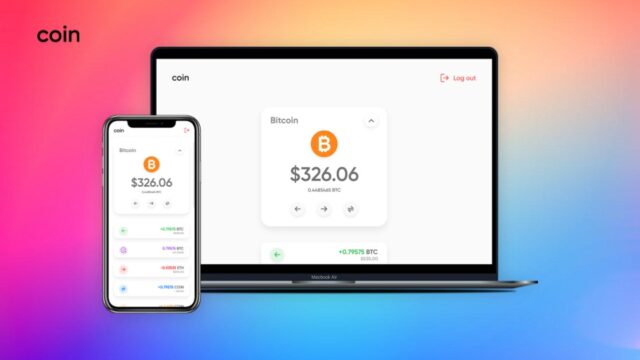Centralized exchanges are platforms that almost everyone who has dabbled in cryptocurrency has used as their introduction to digital asset acquisition and management. They’re usually an easy on-ramp to cryptocurrency, have user-friendly interfaces, and high liquidity. They also come with high fees, control of wallet keys, and a limited number of digital assets when one considers there are thousands of tokens available today.
Centralized exchanges are third parties that facilitate buys, sells, and trades of cryptocurrencies. As such, they inherited problems that are part of the legacy financial system, ie: censorship (the need for AML/KYC which collects user information that must be centrally stored), risks of hack and data breach, and the possibility of market manipulation. These problems are native to all centralized, traditional, and non-traditional, financial service providers.
On the opposite end of the spectrum are decentralized exchanges. In particular – the Coin Exchange, a new innovation that has recently been announced by US-based Coin, a FinTech startup founded by Damon Nam, CEO and Byron Levels CTO, two ex-Microsoft alumni with over 40 years combined in Information Technology Services.
The Coin Exchange is completely decentralized. Coin’s intention is to shake up current cryptocurrency wallets and exchanges by providing the simplest and safest way for crypto users and average consumers alike to manage their digital assets.
Let’s look at Coin Exchange’s standard features. This product is an all-in-one cross-chain P2P decentralized cryptocurrency wallet, exchange, and assistant powered by atomic swaps and artificial intelligence (AI) technology. It is inclusive of an integrated cryptocurrency wallet for the storage of popular digital assets such as Bitcoin, Ethereum, ERC20 supported tokens and more. For exchanging assets, it implements atomic swap technology that creates digital contracts that mimic and replace the need for middlemen and intermediaries. Transactions occur directly between users, therefore; using this product ensures little to no fees all while using the most secure method of transferring value. Further to all of this, its non-custodial design ensures that Coin Exchange is unhackable.
Included in the solution is browser extension support, for the Internet’s most popular web browsers, which, when installed, works in the background, using AI technology to execute transactions faster and provide insights. This saves users time and money. Coin Exchange has an integrated assistant that can
recognize blockchain-related keywords from any webpage. The AI assistant allows Coin to provide education, pricing information, or help consumers execute financial transactions directly from any webpage with an input field. As an example, users can send, receive and exchange transactions in a guided process or simply by typing a text command such as “Send $50 Bitcoin to @cryptojane” in any input field on the Internet. This removes the complexity of a task that would usually require navigating to a company website, paying their fees, completing their forms, waiting for transactions to process, etc..All of this can now be completed in a matter of seconds while surfing the web.
What does Coin offer that centralized exchanges don’t?
AI-Powered Assistant and Browser Extension
It is Cross-Chain and Supports Bitcoin Yes Yes It is peer-to-peer and completely decentralized It is Non-Custodial (does not have any access to user funds)
Anonymous and No KYC (free from user data)
Atomic Swap Engine
On-Chain Settlement
Staking Support
Revenue Sharing
It’s going to be interesting to see how the current leaders in the market will adapt to this competition, since the users of the relatively young crypto services are very open to trying new providers and systems if it works in there advance.
(Syndicated press content)
Read more:



































